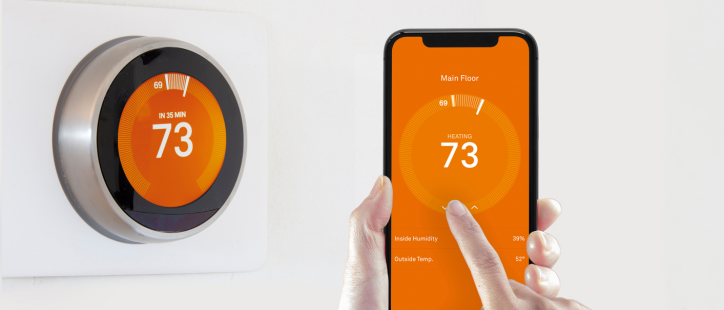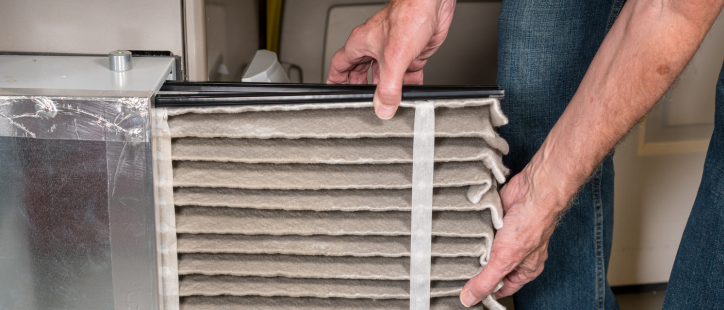A well-functioning furnace is essential for maintaining a warm and comfortable home during the cold months. However, if your furnace is making loud, unusual noises, it can be cause for concern. These noises can range from banging and clanging to whistling and screeching, and they often indicate underlying issues that need to be addressed. Here, we will explore the common reasons why furnaces make loud noises and what to do if your furnace is making a loud noise.
1. Banging or Popping Noises:
If you hear loud banging or popping sounds coming from your furnace, it can be alarming. These noises often indicate issues with the furnace’s ignition system or heat exchanger. Here’s what you can do:
- Turn Off the Furnace: First, turn off your furnace to ensure safety.
- Inspect the Heat Exchanger: Look for visible cracks or damage in the heat exchanger. If you see any, contact a professional immediately, as a damaged heat exchanger can lead to carbon monoxide leaks.
- Call a Technician: Even if you don’t see visible damage, it’s advisable to call a certified HVAC technician to inspect and repair your furnace. Banging or popping sounds can also be caused by a malfunctioning ignition system or delayed ignition, which a professional can diagnose and fix.
2. Whistling or Hissing Noises:
A whistling or hissing sound often indicates issues with airflow in the furnace system. Here’s what to do:
- Check Air Filters: Inspect and replace dirty or clogged air filters. Restricted airflow can create these noises as the furnace struggles to draw in air.
- Inspect Ductwork: Examine the ductwork for visible damage, loose connections, or gaps. Seal any leaks with HVAC-approved tape or mastic sealant.
- Check Vents and Registers: Ensure that vents and registers are open and unblocked, as obstructions can disrupt airflow and cause these sounds.
- Schedule Maintenance: Regular maintenance by an HVAC technician can address airflow issues and keep your system running smoothly.
3. Rattling or Clanging Noises:
Rattling or clanging sounds can be caused by loose or damaged components within the furnace. Here’s what you can do:
- Turn Off the Furnace: For safety, turn off the furnace.
- Check for Loose Panels: Inspect the furnace’s access panels and casing for loose or detached parts. Tighten or secure any loose components.
- Examine the Blower Wheel: The blower wheel can sometimes accumulate debris or become unbalanced, causing rattling noises. Ensure it’s clean and properly aligned.
- Call a Technician: If you can’t identify the source of the noise or if it persists after checking and securing loose parts, contact an HVAC technician. Internal components may require professional inspection and repair.
4. High-Pitched Screeching Noises:
Screeching or squealing sounds typically indicate issues with the furnace’s blower motor or blower belt. Here’s what you can do:
- Turn Off the Furnace: As always, start by turning off the furnace.
- Inspect the Blower Belt: Check the blower belt for wear and tear. If it’s loose, damaged, or frayed, it may need to be replaced.
- Lubricate Bearings: If the blower motor’s bearings are causing the screeching noise, they may need lubrication. Consult your furnace’s manual for guidance on lubricating motor bearings.
- Call a Technician: If you’re uncomfortable with any of the above steps or if the noise persists after addressing them, it’s best to contact an HVAC technician. They can diagnose and repair blower motor or blower belt issues safely.
5. Booming or Explosive Noises:
Loud booming or explosive sounds should be taken very seriously, as they can indicate a severe issue. Here’s what to do:
- Turn Off the Furnace Immediately: If you hear these noises, turn off your furnace immediately and shut off the gas supply if applicable.
- Evacuate the Home: If you suspect a gas leak or any other serious issue, evacuate your home and call 911 or your local emergency services.
- Do Not Restart the Furnace: Do not attempt to restart the furnace yourself. Contact a professional HVAC technician immediately to inspect and repair the system.
Contact the Furnace Experts at Maffei Services if Your Furnace is Making a Loud Noise
When your furnace is making loud and unusual noises, it’s essential not to ignore them. Addressing these noises promptly can prevent further damage to your furnace and ensure your home stays warm and safe. While some minor issues can be resolved with DIY troubleshooting, many furnace noises require the expertise of a certified HVAC technician. Regular furnace maintenance and inspections are also essential for preventing these issues from arising in the first place. By staying proactive and taking the necessary steps to address furnace noises, you can keep your heating system in excellent condition and enjoy a cozy, quiet, and comfortable home during the winter months.



